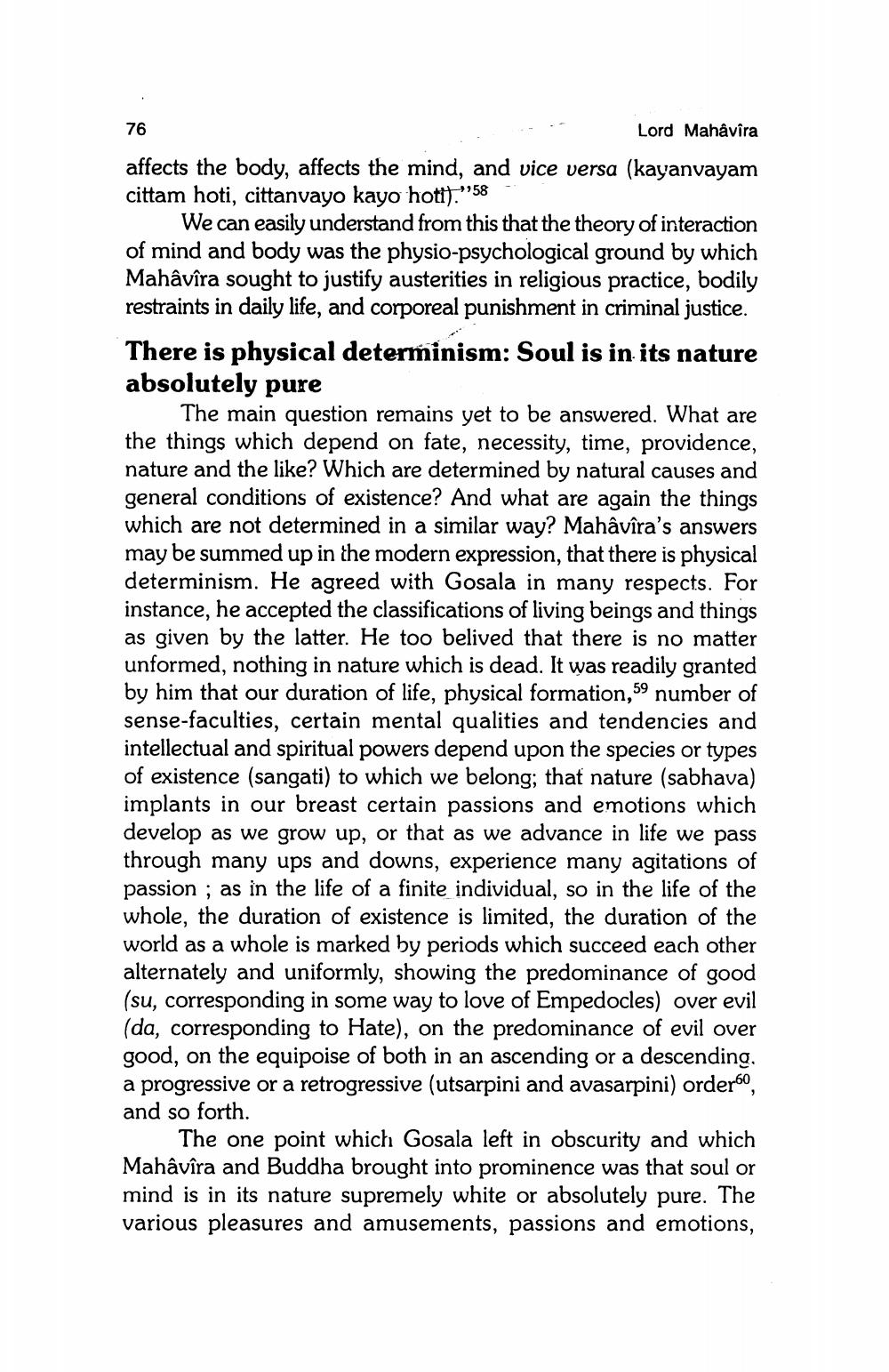________________
76
Lord Mahavira affects the body, affects the mind, and vice versa (kayanvayam cittam hoti, cittanvayo kayo hott)."58
We can easily understand from this that the theory of interaction of mind and body was the physio-psychological ground by which Mahâvîra sought to justify austerities in religious practice, bodily restraints in daily life, and corporeal punishment in criminal justice. There is physical determinism: Soul is in its nature absolutely pure
The main question remains yet to be answered. What are the things which depend on fate, necessity, time, providence, nature and the like? Which are determined by natural causes and general conditions of existence? And what are again the things which are not determined in a similar way? Mahâvîra's answers may be summed up in the modern expression, that there is physical determinism. He agreed with Gosala in many respects. For instance, he accepted the classifications of living beings and things as given by the latter. He too belived that there is no matter unformed, nothing in nature which is dead. It was readily granted by him that our duration of life, physical formation,59 number of sense-faculties, certain mental qualities and tendencies and intellectual and spiritual powers depend upon the species or types of existence (sangati) to which we belong; that nature (sabhava) implants in our breast certain passions and emotions which develop as we grow up, or that as we advance in life we pass through many ups and downs, experience many agitations of passion; as in the life of a finite individual, so in the life of the whole, the duration of existence is limited, the duration of the world as a whole is marked by periods which succeed each other alternately and uniformly, showing the predominance of good (su, corresponding in some way to love of Empedocles) over evil (da, corresponding to Hate), on the predominance of evil over good, on the equipoise of both in an ascending or a descending, a progressive or a retrogressive (utsarpini and avasarpini) ordero, and so forth.
The one point which Gosala left in obscurity and which Mahâvîra and Buddha brought into prominence was that soul or mind is in its nature supremely white or absolutely pure. The various pleasures and amusements, passions and emotions,




